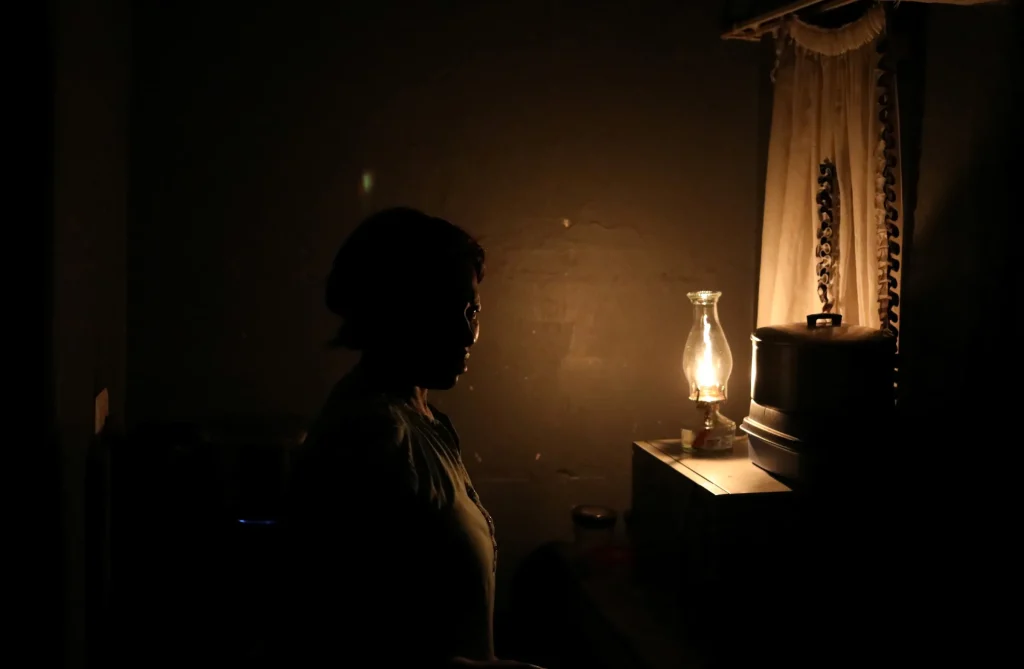In December 2023, the Energy Commission issued an important advisory addressing the irregular power outages that occurred throughout the year.
The Commission emphasized the urgent need for the government to invest in maintaining a reliable gas supply, which is critical for the country’s power generation.
Over the last month, many areas in Ghana have experienced sporadic power outages, causing concern among citizens and businesses.
The Electricity Company of Ghana (ECG) has faced calls to release a blackout schedule so people can better plan for these disruptions. Businesses, in particular, are worried about the power situation, especially after years of stability in the energy sector.
A review of the Energy Commission’s 2024 Energy Outlook report, released in December 2023, reveals that the Commission had already raised the alarm about this issue.
According to the report, the “security and adequacy of fuel supply to thermal plants remain the single most important risk to power supply reliability in the country.” The Energy Commission advised the government to invest in improving gas supply reliability, especially as Ghana’s power generation relies increasingly on natural gas.
The Commission also recommended that the government speed up the construction of a gas pipeline to connect the power enclaves of Tema and Takoradi.
Additionally, it proposed the creation of a new power generation enclave in Kumasi. To address short-term gas supply shortages, the Energy Commission suggested increasing hydroelectric power generation beyond its current limits.
Recent power cuts have mainly been linked to financial constraints in fuel procurement. The Cash Waterfall Mechanism (CWM), designed to ensure liquidity in the energy value chain, has not been able to meet the required financial flows.
According to Dr. Mohammed Amin Adam, Ghana’s Finance Minister, the energy sector faces a financing gap of around $1.9 billion. Despite this, he assured investors that efforts are being made to make the sector profitable.
The Public Utilities Regulatory Commission (PURC) reported that the ECG currently collects about GHS850 million each month, falling short of the required GHS1.9 billion to ensure smooth operations. This shortfall has further complicated efforts to maintain reliable power supply.
The Energy Commission’s report forecasts that grid-connected power generation capacity in 2024 will reach 5,194 MW, with a total dependable capacity of 4,756 MW.
However, because of scheduled maintenance and fuel supply challenges, only about 4,400 MW of dependable capacity is expected to be available.
This is projected to meet the peak demand of 3,788 MW, but it will leave a reserve margin of 16%, which is below the recommended 18% safety margin.
The report also highlighted that natural gas, both domestic and imported, will continue to be the primary fuel for thermal power plants. The total consumption of natural gas for the year is expected to reach 137.5 TBtu (trillion British thermal units).
In response to the recent power outages, Mr. Herbert Krapa, Board Chairman of the ECG, announced that the government is taking immediate actions to restore stable power supply.
He shared this update following the commissioning of the Volta River Authority’s (VRA) 15MW solar plant in Kaleo, reassuring the public that “we’re fixing it, and we’re nearly there.”
To further address the issues, the government is purchasing one million revenue-efficient meters through the World Bank’s Programme-for-Results (PforR) initiative. This move aims to improve revenue collection.
Additionally, all 61 of ECG’s revenue collection accounts are being merged into a single fund to increase transparency and ensure smoother distribution of revenue across the energy value chain.
These measures are in line with the recommendations made by the Energy Commission, which remains a critical body in guiding Ghana’s energy policies and ensuring the country’s power needs are met sustainably.
As the energy landscape continues to evolve, the Commission’s role will be even more important in maintaining a stable and reliable power supply for the nation.
As Ghana’s energy demands grow, the role of the Energy Commission becomes even more essential. The Commission’s efforts to address the country’s power supply issues focus heavily on ensuring a stable flow of gas and electricity.
With thermal plants playing a key role in energy production, the reliable supply of natural gas is a top priority for the Commission.
In the coming years, Ghana’s power generation will depend even more on natural gas. According to the Energy Commission, the increasing demand for power, combined with the expansion of industries, means that natural gas consumption will rise significantly.
The projected consumption of 137.5 TBtu of natural gas in 2024 highlights the country’s growing dependency on this fuel source. If the government does not invest in securing steady gas supplies, the risk of power outages will continue to loom over Ghana’s economy.
Hydroelectric power also remains an important component of Ghana’s energy mix. However, as the Energy Commission pointed out, there is a limit to how much power can be generated from hydroelectric plants.
Climate change, seasonal water availability, and the growing population make it increasingly challenging to rely solely on hydro sources. To bridge the gap, the Commission recommends boosting gas supplies and investing in new power generation facilities.
The Energy Commission also recognizes the need for new energy infrastructure. The proposed gas pipeline connecting the Tema and Takoradi power enclaves will not only increase the capacity to generate power but also ensure better distribution across the country.
The Commission’s proposal to establish a new power generation hub in Kumasi is aimed at spreading energy production more evenly and reducing pressure on existing power facilities.
The recent financing shortfall in the energy sector has exposed vulnerabilities in Ghana’s energy value chain. The ECG’s revenue shortfall, collecting only GHS850 million instead of the required GHS1.9 billion each month, has made it difficult to fund essential projects and maintain regular fuel supply.
The Energy Commission‘s recommendations for improving revenue collection and accountability are critical steps in resolving this issue.
The government’s decision to merge ECG’s collection accounts into a single fund is expected to enhance transparency and ensure that funds are used efficiently to maintain the energy supply chain.
Looking ahead, Ghana’s energy future will depend on its ability to balance various energy sources—natural gas, hydroelectric power, and renewables.
Solar energy projects, like the VRA’s new 15MW facility in Kaleo, represent an important step toward diversifying the country’s energy portfolio. The Energy Commission has consistently supported investments in renewable energy, seeing them as a long-term solution to energy shortages.
The challenges facing Ghana’s energy sector are significant, but the government’s response, along with the guidance of the Energy Commission, gives hope that these issues can be resolved.
As new projects are implemented and investments are made in both infrastructure and fuel supply, the country is moving closer to securing a reliable and sustainable energy future.
The Commission’s ongoing efforts to monitor and advise on energy policies will continue to play a crucial role in ensuring that Ghana’s power needs are met effectively and efficiently.
In conclusion, the Energy Commission remains central to Ghana’s efforts to maintain a stable power supply.
Its recommendations on improving gas supply, enhancing revenue collection, and developing new energy infrastructure are key to overcoming the current challenges.
By following the Commission’s advice, Ghana can continue to build a resilient energy sector capable of meeting the growing demands of its population and economy.























